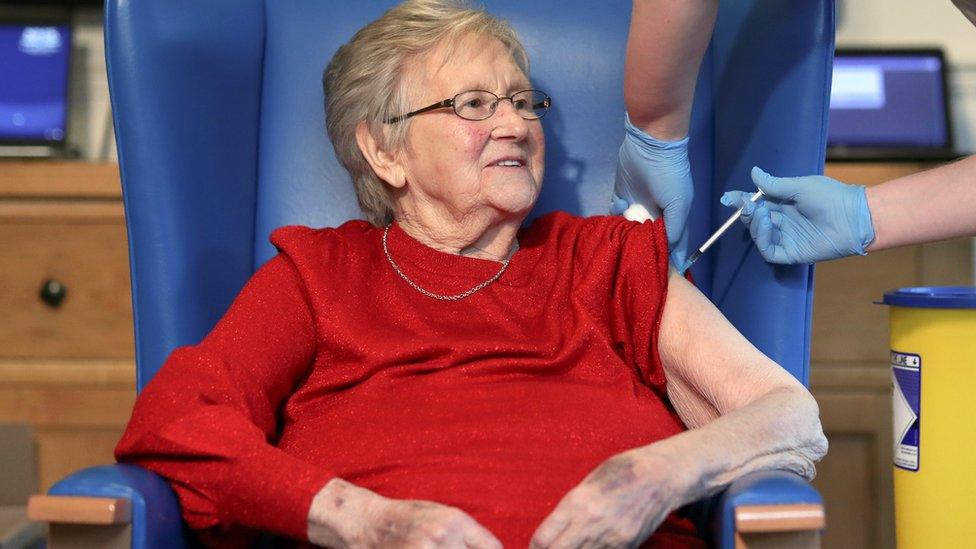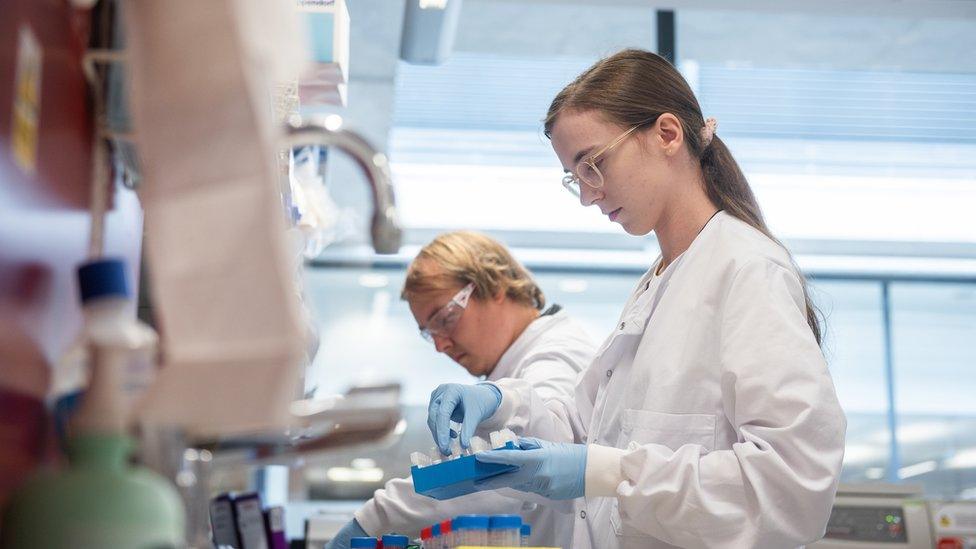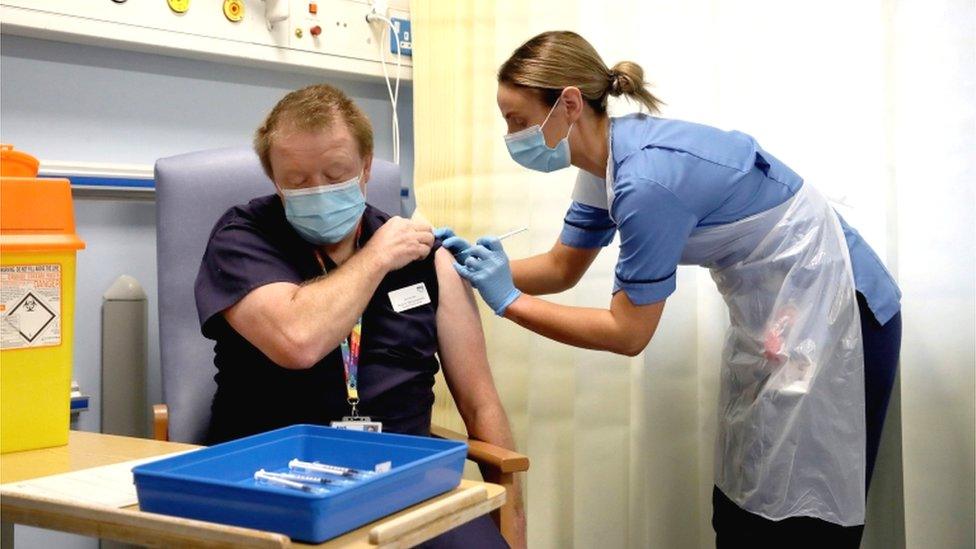Covid in Scotland: First Pfizer vaccine dose given to 56,000 people
- Published

Annie Innes was the first care home resident in Scotland to receive the vaccine
The first dose of the coronavirus vaccine has been given to 56,676 people in Scotland since the programme began.
Care home residents, carers and NHS staff were among those to receive the Pfizer jab between 8-20 December.
Health Secretary Jeane Freeman said the second dose for this group is due to be completed by the end of January.
And a further 172,575 doses of the vaccine are due to arrive in Scotland by the end of this week.
Because of transport issues, stability issues, storage requirements and pack sizes, there has been "limited capacity" to take the Pfizer vaccine to where it is needed, Ms Freeman said.
The health secretary also said there were ongoing issues with "predictability of delivery" of the vaccine across the UK.
However she said it could now be "packed down" by health boards into smaller sizes, which meant the programme can be rolled out to care homes and transported to all of the Scottish islands.
Ms Freeman added that if the Oxford/AstraZeneca vaccine is approved for use by the end of the year, as is expected to be the case, it could be rolled out to the over 80s in January.
These vaccinations will largely be delivered through primary care settings.

The Oxford/AstraZeneca vaccine is currently in the final stages of testing
What will happen in January?
If the Medicines and Healthcare products Regulatory Agency approves the Oxford/AstraZeneca drug by the end of the month, Ms Freeman said this could be rolled out to people over the age of 80 who are not care home residents from 11 January.
This will largely largely delivered in primary care settings, she said.
Scottish Conservative health spokesman Donald Cameron asked Ms Freeman for clarification on how GPs and primary care would be affected, as she had previously said they would not be heavily involved in the vaccine programme.
Ms Freeman said after talks with the Royal College of General Practitioners (RCGP) and the British Medical Association (BMA), it had been decided that GPs would volunteer at vaccination centres.
Vaccinations will also be given in GP surgeries while staff will also be used to take vaccines to people at home who require it.
Ms Freeman said the government had "reached an agreement" with GPs on the overall cost of this.
The Oxford/AtraZeneca vaccine is expected be deployed "far wider" than the Pfizer drug as it does not need to be kept at a low temperature.
The Scottish government is developing a national scheduling tool for vaccinations and aims to roll this out by the end of January.
All groups who have the "greatest clinical need" for the vaccine, according to the Joint Committee on Vaccine and Immunisation (JCVI), are due to be completed by spring.
This includes:
those delivering the vaccination programme
frontline health and social care staff
older residents in care homes
care home staff
all those aged 80 and over
unpaid carers and personal assistants
Ms Freeman said: "The dedicated officials and NHS staff who have taken forward the vaccine programme have done remarkable work at pace and I am grateful to them for it.
"I know the wait for many to get the vaccine will be an anxious one - be assured we will contact you as soon as we have the vaccine supply and as soon as we reach your eligible group.
"It's also essential though that once you've been contacted you attend your first vaccination and that you return for your second dose."
The majority of Scotland is due to go into level four restrictions for at least three weeks from Boxing Day.
However national clinical director Jason Leitch said that a March-style lockdown may be needed to supress the new strain of the virus, rather than measures used in November.
As he gave evidence to the Scottish Parliament's Covid-19 committee on Wednesday, Prof Leitch said it will be "very, very difficult" to keep the R number below one given how transmissible the variant is.
Related topics
- Published8 December 2020

- Published22 January 2021
